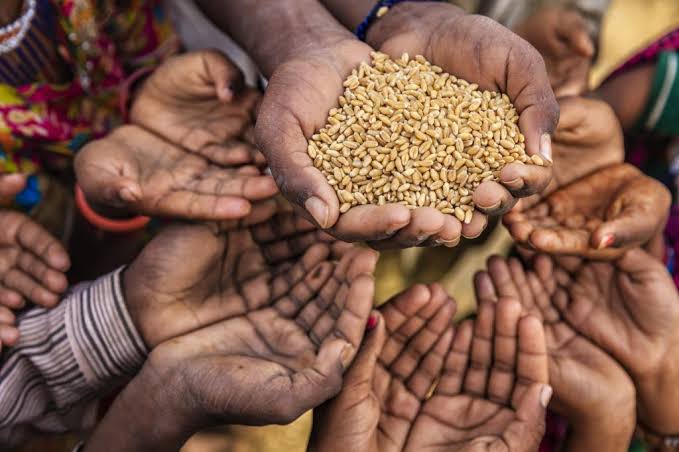
Faith Nyasuguta
After three decades in power, the African National Congress (ANC) is facing its most challenging election yet. Surveys indicate that the party might lose its majority for the first time. Once revered, the ANC’s image has been tarnished by high unemployment, widespread poverty, and numerous corruption scandals. President Cyril Ramaphosa is vying for reelection in the upcoming May 29 vote.
Potential Coalition Government
Should the ANC fail to secure a majority, it will have to establish a coalition government for the first time, which could complicate policymaking in South Africa, the continent’s most developed economy. South Africans do not directly elect their president; instead, they vote for parties, which then receive seats in Parliament proportionate to their share of the vote. Members of Parliament then select the head of state.
A President Under Scrutiny

Ramaphosa, a prominent figure in the ANC during the early 1990s, was once considered a protégé of Nelson Mandela. He left the political arena to become a successful businessman before returning as South Africa’s deputy president in 2014. He assumed the presidency in 2018 following Jacob Zuma’s resignation amid corruption allegations.
Ramaphosa has attempted to restore the ANC’s reputation by addressing government corruption. However, unemployment has soared to 32% under his leadership, the highest rate globally and he has struggled to alleviate poverty. An ongoing electricity crisis has resulted in frequent power outages across the nation, severely damaging the economy and Ramaphosa’s image as a problem-solver. These blackouts are largely attributed to mismanagement during the Zuma administration.
While the ANC is still expected to garner the largest share of votes, if it falls below 50% as predicted, it will need coalition partners to reelect the 71-year-old Ramaphosa.
The Main Opposition Leader

John Steenhuisen leads the primary opposition party, the Democratic Alliance (DA). The centrist DA has pledged to “rescue” South Africa from the ANC’s alleged corruption and mismanagement, but it has never come close to winning a national election. In the last general election in 2019, the DA secured 22% of the vote compared to the ANC’s 62%.
The DA has entered a pre-election alliance with smaller opposition parties, hoping their combined votes might secure a majority and oust the ANC. However, they would need a significant increase in support, which is seen as unlikely.
Steenhuisen, 48, is the only white leader among South Africa’s major political parties. In a country where race remains a central issue, critics argue that the DA represents the interests of the white minority more than the 80% of South Africans who are Black.
A Firebrand Marxist

The Economic Freedom Fighters (EFF) have quickly risen to become South Africa’s third-largest party in Parliament since their formation in 2013 by Julius Malema, a former ANC youth leader expelled from the ruling party. Malema’s fiery, far-left rhetoric has made him the nation’s most controversial politician, but his critique that the ANC has failed poor, Black South Africans has resonated, particularly with unemployed and disillusioned young people.
The EFF advocates for the nationalization of mines and the redistribution of land to impoverished Blacks. Following a Marxist ideology, the party argues that economic inequality based on race persists decades after apartheid, with whites generally wealthy and Blacks still impoverished.
Malema and other EFF members frequently disrupt parliamentary proceedings and have clashed with security personnel, introducing a militant style of politics to South Africa’s democracy. The EFF is a potential coalition partner for the ANC, though neither party has confirmed any agreement.
Zuma’s Return
Former President Jacob Zuma added a new twist when he announced in December that he was leaving the ANC and returning to politics with a new party. Zuma’s MK Party is not expected to challenge the top three parties but could further erode the ANC’s vote as the ruling party faces its most severe electoral test. The 81-year-old former leader still commands support, especially in his home province of KwaZulu-Natal.
His return also raises security concerns for the election, following his conviction for contempt of court and subsequent imprisonment in 2021, which triggered a week of riots and looting that resulted in over 350 deaths — the worst violence in South Africa since the final days of apartheid.
Zuma is contesting whether his criminal conviction disqualifies him from running for Parliament. There are fears of unrest if he is barred. Even if he is allowed to run, his newfound reputation as an agitator could heighten tensions around this pivotal election.

A Crucial Moment
As South Africa braces for what could be its most significant political shift since the end of apartheid, the stakes are high.
The ANC’s potential need to form a coalition government marks a historic change, with major implications for the nation’s future governance and stability. This election could redefine South Africa’s political landscape and test its resilience in addressing economic and social challenges.
RELATED:




